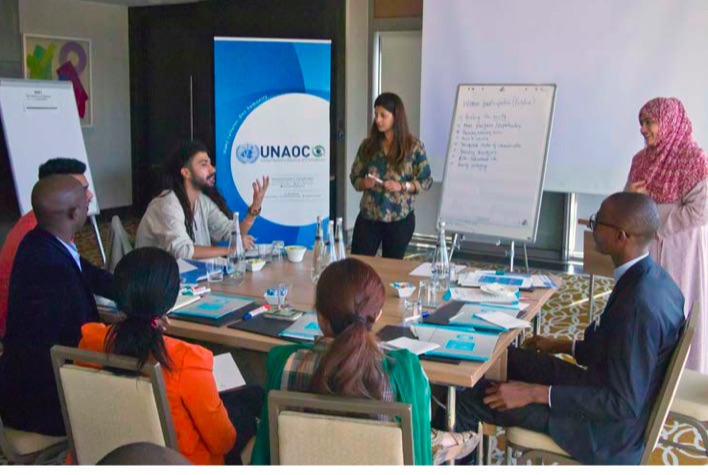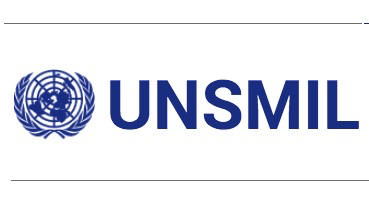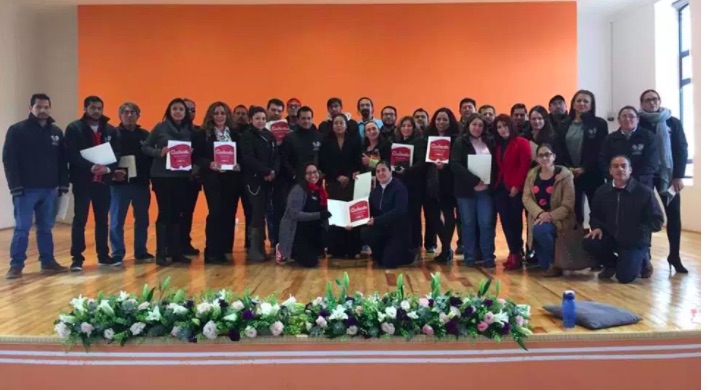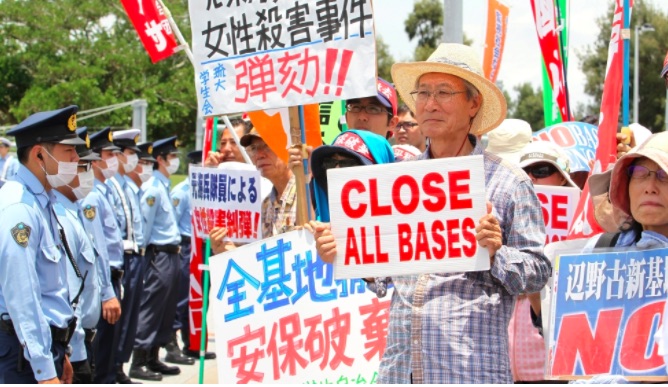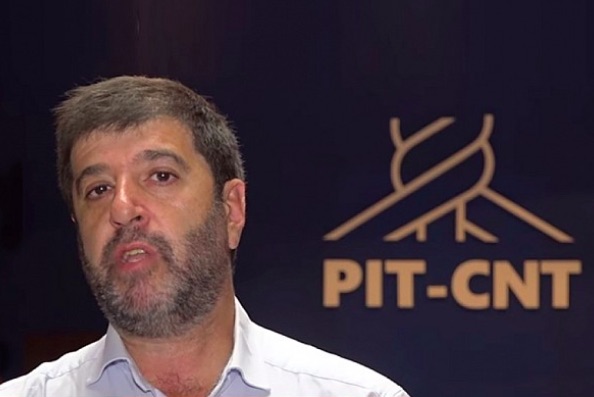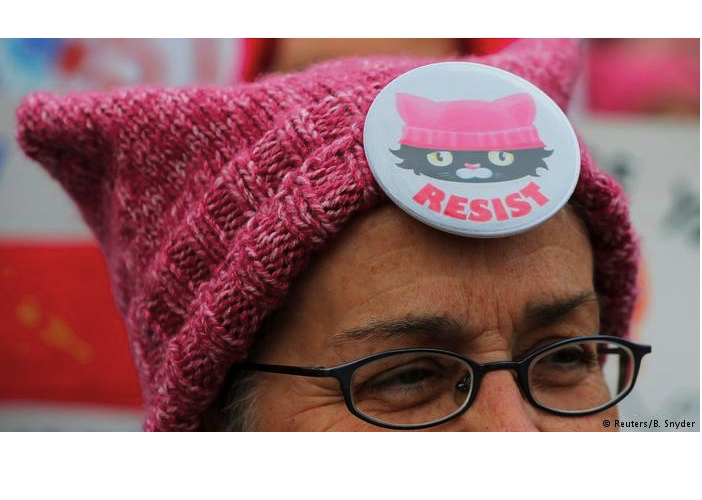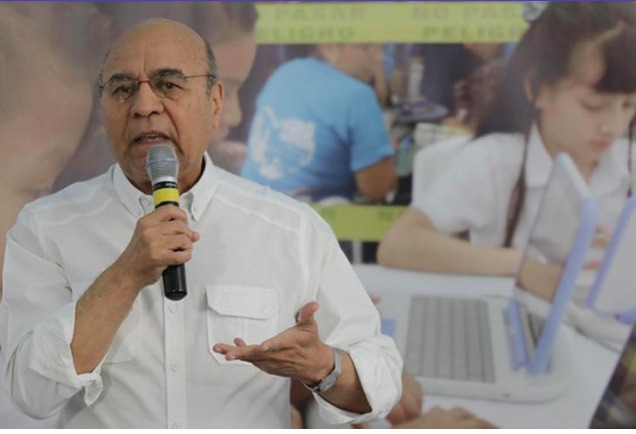.. DEMOCRATIC PARTICIPATION ..
An article from 20 Minutos (reproduced according to terms of Creative Commons)(translated by CPNN)
The 271 educational centers of the province of Almería integrated into the Network ‘School: Space of Peace’ have celebrated this Tuesday [January 30] the ‘School Day of Peace and Non-Violence’ with a program of recreational and cultural activities to promote the democratic values of equality, respect for diversity and tolerance.
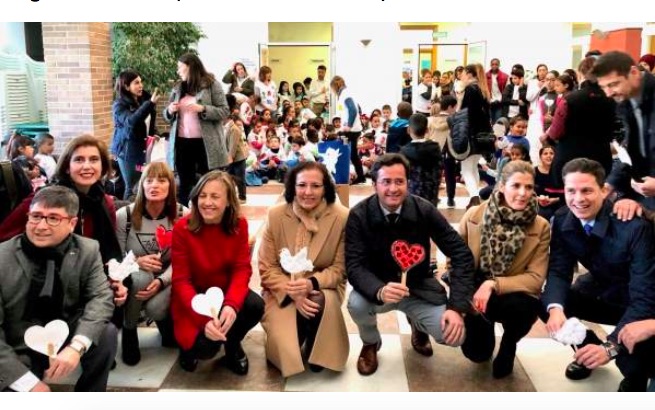
Click on photo to enlarge
More than 100,000 students and 6,000 teachers participate in Almería in these initiatives to promote coexistence among the educational community. The delegate of the Junta, Grace Fernandez, who has highlighted the commitment of the educational community to solidarity and dialogue, has taken part along with the students of Las Norias de Daza and IES Aguadulce in the events they have organized to commemorate this international event.
Some thirty NGOs participated in the ‘VII Volunteering, Participation and Solidarity Day’ at the IES Aguadulce. The meeting, which puts students in direct contact with the work carried out by the associations in different areas, has been inaugurated by the Government delegate of the Junta, Gracia Fernández, who has visited the information tables of the different groups installed in the center accompanied by the delegate of Education, Francisca Fernández, and by the director of the institute, Amparo García.
During her visit, Gracia Fernández pointed out that this day highlights “the joint work of the educational community of the IES Aguadulce in promoting the values of solidarity, social justice and equal opportunities and its promotion among students”.
The day, which celebrates its seventh edition, includes an exhibition area located in one of the covered courtyards of the center where, from 9 in the morning and until 13.30, the associations have shown the work they do through brochures, panels and other information material.
The program is completed with a series of lectures and workshops given by the different participating NGOs, aimed at students of ESO, Baccalaureate and Computer Training Cycles.
The delegate of the Government has explained that this type of meeting “contributes to make visible to society the work of the volunteer and their altruistic and solidary commitment. It reinforces the contents of these topics that are included in the Andalusian educational curriculum”.
Fernandez referred to the role of volunteering “as an instrument of participation of society and as a space from which citizenship is built and democracy is strengthened”. “Solidarity, social responsibility, justice and equal opportunities are values that voluntary action and the public education system of Andalusia share”, explained the delegate.
(Article continued in right column)
(Click here for the article in Spanish)
How important is community development for a culture of peace?
(Article continued from left column)
She encouraged young people to participate in the associative movement “to combat exclusion, fight for equality, for education, for the integration of people with disabilities, for culture and for the environment, in short, for a more just society “.
Amnesty International, Proyecto Hombre, Greenpeace, Posidonia, Manos Unidas, Asalsido, Colega, Cáritas, Posidonia and A Toda Vela are some of the thirty associations that participated, together with the Andalusian Institute of Youth (IAJ) in this VII Volunteer Day of the IES Aguadulce, a center with 1,630 students and 75 teachers, which develops, among other programs, the Youth Formation and the Espacio de Paz School.
CAREER FOR SOLIDARITY IN LAS NORIAS
The delegates of the Government and Education, Gracia Fernández and Francisca Fernández, also visited this morning Las Norias de Daza to share with the students of the educational centers of this ejidal neighborhood the activities organized by the Local Board of Education and Community on the occasion of the ‘School Day of Peace’, including a charity race in favor of the NGO ‘Save the Children’.
Gracia Fernández thanked the educational community and the members of the Local Committee “their generous collaboration in the process of permanent improvement of the public education system.”
The Local Board of Education and Community of Las Norias was created in 2012 under the Intercultural Intervention Project promoted by the Social Work of La Caixa and on the initiative of the Association of Cooperation and Development with North Africa (Codenaf) with the support of the Junta and the City Council of El Ejido.
It has the participation of the five educational centers of Las Norias and a mixed group of technicians and professionals from social services, health, sports and education.
Its objective is to be a forum for reflection to collectively manage the cultural diversity of Las Norias and promote social cohesion and coexistence.
The delegate of Education has stressed that “the work of the Local Board of Education has paid off in improving the academic results of all students and in the development of an educational project that is enriched with multiculturalism and diversity.”
SCHOOL DAY OF PEACE
The School Day of Peace and Nonviolence has been celebrated on January 30 since 1964, when it emerged as an initiative of the Spanish teacher Llorenç Vidal for the dissemination of education for tolerance, solidarity, concord and respect for human rights. In 1993 it received the support of UNESCO. The anniversary coincides with the date of the death of Mahatma Gandhi, murdered in 1948.
The delegate of Education, Francisca Fernández, stressed that “the culture of peace is not only a transversal content but is one of the ultimate goals of the public educational system in Andalusia that is specified in the Andalusian Plan for Education for the Culture of Peace and which involved the creation in the 2002-2003 academic year of the School Network: Space of Peace “.


